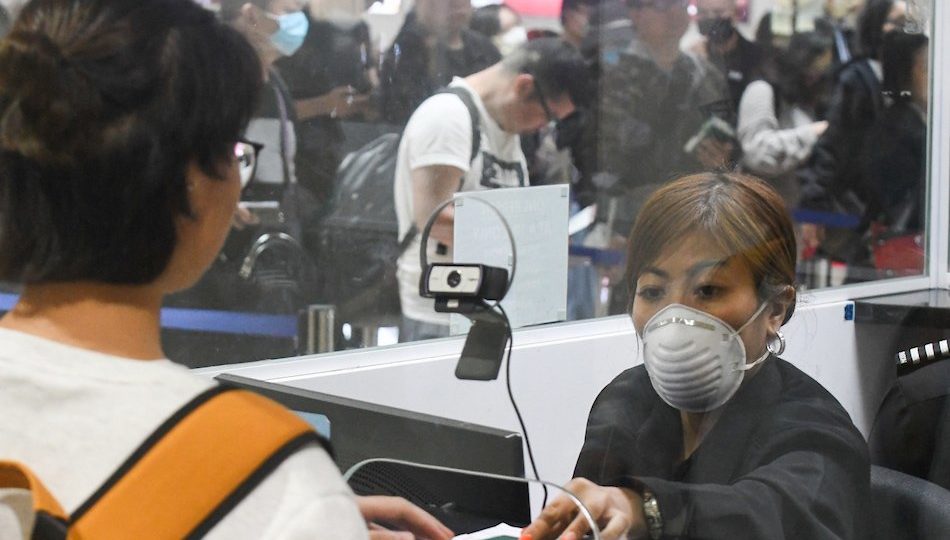A public health expert has advised against repatriating Filipinos from Hubei province, the epicenter of the Wuhan coronavirus outbreak, after the Department of Foreign Affairs (DFA) announced yesterday that it is ready to bring Filipinos home from the area.
The DFA said that it was taking safety measures to ensure that some 50 Filipinos expected to be repatriated from the province will be quarantined upon arrival for two weeks.
However, some experts have objected to this measure, saying Filipinos in Wuhan should stay in the affected area and quarantine themselves instead.
Dr. Susan Mercado told ANC Headstart in an interview that repatriation was not a good idea, and would “probably increase their exposure at this point in time where you have a peak in the community transmission.”
Mercado is currently a Special Envoy of the President for Global Health Initiatives, and has worked with the World Health Organization and the country’s health department in the past.
Foreign Affairs Undersecretary Brigido Dulay said in a press conference yesterday that repatriation was an option, and that Filipino workers will not be forcibly evacuated. He added that the two-week quarantine upon arrival would “be for their protection, as well as the protection of their families.”
Philippine Ambassador to China Chito Sta. Romana, meanwhile, advised the Philippine community to impose a self-quarantine. He added that they are cooperating with Chinese authorities to deliver medical supplies to Filipinos in Wuhan, which is currently on lockdown.
According to the Health Department’s latest update, the Philippines remains free of the coronavirus, but is monitoring 22 possible patients in six regions, including 13 in Metro Manila, three in Western Visayas, three in Central Visayas, and one each in the Southwestern Tagalog Region, Eastern Visayas, and in Northern Mindanao.
Read: Philippine immigration suspends on-arrival visas for Chinese nationals
Meanwhile, confirming its sixth and seventh cases of the Wuhan coronavirus yesterday, Singapore has announced new measures to quarantine Chinese nationals from Hubei province, where most infections are concentrated, and to bar those who’ve been there from entering, including anyone holding a passport issued there.
Malaysia also confirmed it has found seven coronavirus cases, while cases of person-to-person transmission of the virus outside China have been reported in Japan and Germany.
Though anxiety has spread faster than the virus, emptying store shelves of protective masks, many of those who took ill in the first days have already recovered, with Vietnam and Cambodia reporting patients there as on the mend.
Confirmed infections have climbed to more than 5,000 across China, mainly in Wuhan, which is now inside a growing exclusion zone that has locked down more than 50 million people.
The novel coronavirus has spread to at least 13 other countries outside of China.
Several countries have begun evacuating residents from the quarantine zone, with more than 200 Japanese airlifted from Wuhan landing in Tokyo this morning.
The United States, France, and Australia have also said they are planning evacuations. Thailand announced an evacuation effort but suspended plans after consulting with Chinese officials.
The outbreak does not yet constitute a global health emergency, according to the World Health Organization, which this morning announced a centralized system for compiling infection data.
WHO is launching a Global Clinical Data Platform to allow Member States to contribute anonymized clinical data in order to inform the public health clinical response to new #coronavirus (2019-nCoV).
WHO Situation Report 28 January 2020 https://t.co/uXR2BXEW2A pic.twitter.com/xG8qV8kWfs
— World Health Organization (WHO) (@WHO) January 28, 2020
The SARS-like virus, designated 2019-nCoV, is a never-before-seen member of the coronavirus family. The new strain, which reportedly emerged from a now-shuttered market that sold exotic wildlife such as bats, is believed to have come from animals. China has temporarily suspended all wildlife trade.
The number of confirmed cases in mainland China stands at 5,974 this morning, with 132 deaths.




